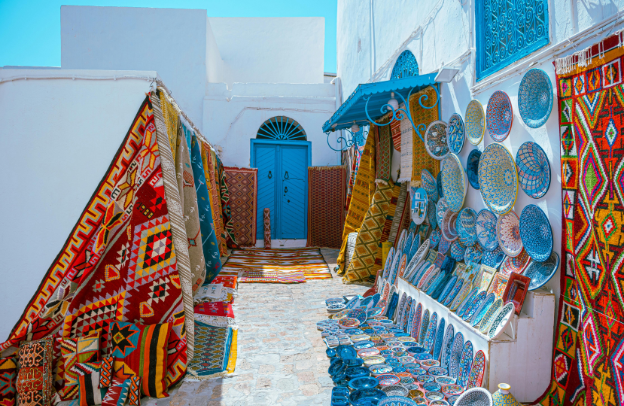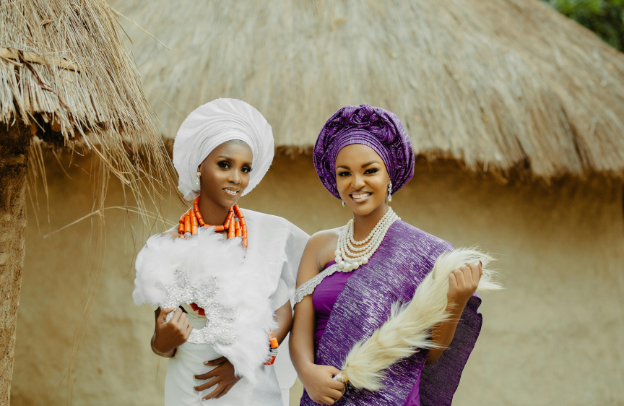Creating a Sustainable Future: Collaborative Group Tourism and Its Role in Diaspora Development

In the heart of Accra, Ghana, a group of travelers gathers, their excitement palpable. They’ve journeyed from various corners of the globe, united by a shared heritage and a common purpose: to reconnect with their roots and explore potential business ventures. This scene is becoming increasingly common as group tours evolve from mere cultural excursions to platforms for economic collaboration.
Learn How to Leverage Your Story through our Story To Asset Framework.
For members of the African diaspora, these journeys offer more than just a return to ancestral lands; they open doors to collaborative business opportunities that bridge continents and cultures.
The Rise of Diaspora Tourism
Diaspora travel has gained momentum in recent years, driven by a desire among people of African descent to reconnect with their heritage. Initiatives like Ghana’s “Year of Return” in 2019 and its successor, “Beyond the Return,” have played pivotal roles in this movement.
These programs not only encourage cultural reconnection but also promote economic engagement, inviting diasporans to invest in local businesses and infrastructure. The Ghanaian government, for instance, established the “Sankofa Account” to facilitate diaspora investments in the country’s economy.
See also Ghanaian Afro-dancehall star Stonebwoy Musical Pilgrimage: Uniting the Black Diaspora Through Sound
According to the publication “African Diaspora Tourism – How Motivations Shape Experiences,” this form of travel plays a crucial role in preserving historic sites, fostering a deeper sense of cultural identity, and increasing awareness—particularly among younger generations—of the complex and painful history of slavery.
The study emphasizes the importance of effectively managing diaspora travel to ensure meaningful and sustainable impact. Through an in-depth empirical investigation, it explores how the motivations of diaspora tourists influence their perceptions of Ghana as a destination—including their satisfaction, emotional connection (place attachment), and intentions for future visits. Interestingly, the research reveals that four out of five key motivational factors significantly shape tourists’ evaluations of their ancestral homeland, with the desire to “escape” being the only factor with minimal influence.
This research contributes valuable insights into the dynamics of diaspora travel, offering guidance for policymakers, travel developers, and cultural organizations seeking to engage the global African diaspora in ways that are both respectful and impactful.
Group Tours as Catalysts for Business Collaboration
Group tours tailored for the African diaspora are emerging as powerful vehicles for cross-border business development. These curated experiences frequently include site visits to local enterprises, structured meetings with African entrepreneurs, and active participation in business forums and trade expos.
As Obehi Ewanfoh, Director of WeDiasporan, often emphasizes, these interactions offer diaspora participants invaluable, firsthand exposure to Africa’s rapidly evolving economic landscape. By immersing participants in local ecosystems, the tours help them identify investment opportunities and establish meaningful collaborations.
Organizations like WeDiasporan play a vital and growing role in facilitating these initiatives. By connecting diaspora professionals with African business leaders, they enable knowledge exchange, mentorship, and the formation of strategic partnerships—particularly in high-potential sectors like technology, agriculture, and renewable energy.
Beyond his work in content strategy and storytelling, Obehi Ewanfoh also spearheads a Business-to-Business (B2B) matchmaking initiative focused on bridging Western companies with Africa’s emerging markets.
Through his platform, The Obehi Podcast, he has conducted over 1,000 interviews with professionals, entrepreneurs, and thought leaders across the African diaspora and beyond. This extensive global network gives him unparalleled insights into emerging markets and the innovators shaping them. Obehi’s philosophy is simple: when businesses collaborate with aligned goals, everyone benefits.
See also The Importance of Collaboration for a Stronger African Diaspora – WeDiasporan Volunteer Series 16/21
For those unfamiliar with B2B matchmaking, it’s a strategic process of connecting companies with shared interests or complementary strengths—whether in products, services, expertise, or technology. The objective is to foster mutually beneficial partnerships that generate real business value.
Obehi’s personalized matchmaking services are powered by:
- A vast international network within the African diaspora
- Direct business ties across multiple African countries
- A deep commitment to building bridges between markets and forging strategic alliances
Whether you’re a Western company aiming to enter African markets, or an African enterprise seeking international partnerships, Obehi’s matchmaking efforts are designed to help you find the right fit—and turn those connections into tangible opportunities.
Building Trust and Understanding Through Shared Experiences
Traveling in groups allows diasporans to share experiences, discuss observations, and collectively assess potential business opportunities. This communal approach fosters trust and mutual understanding, essential components for successful collaborations. Moreover, group dynamics encourage the pooling of resources and expertise, enabling participants to embark on larger and more impactful ventures than they might individually.
For example, during a group tour to Nigeria, participants might visit a local agricultural cooperative, engage in discussions about sustainable farming practices, and explore avenues for exporting produce to international markets.
Such interactions can lead to the establishment of export partnerships or the introduction of new technologies to enhance productivity.
Leveraging Cultural Heritage for Economic Empowerment
Cultural heritage serves as a powerful motivator for diaspora engagement. By immersing themselves in local traditions, arts, and customs, diasporans gain a deeper appreciation of their ancestral roots. This emotional connection often translates into a commitment to contribute to the community’s development.
Entrepreneurs can capitalize on this by creating businesses that celebrate and preserve cultural heritage. For instance, a diasporan might collaborate with local artisans to produce and market traditional crafts to international audiences, thereby generating income for the community and promoting cultural appreciation abroad.
Overcoming Challenges and Navigating Complexities
While group tours offer numerous benefits, they also present challenges. Differences in business practices, regulatory environments, and cultural norms can pose obstacles to collaboration.
See also Zélie from Haiti to Benin Where the Spirits Waited for Me
To mitigate these issues, it’s essential for tour organizers to provide participants with comprehensive briefings on local customs, legal frameworks, and market dynamics.
Additionally, establishing partnerships with local organizations can facilitate smoother interactions and provide ongoing support for diaspora-led initiatives. These collaborations ensure that ventures are culturally sensitive, legally compliant, and economically viable.
The Role of Technology in Facilitating Connections
Advancements in technology have significantly enhanced the potential for diaspora engagement. Digital platforms enable continuous communication between diasporans and local partners, allowing for real-time collaboration and project management. Virtual meetings, online marketplaces, and digital payment systems have made it easier to initiate and sustain cross-border business relationships.
Moreover, social media and online forums provide spaces for diasporans to share experiences, seek advice, and identify potential collaborators. These digital communities foster a sense of belonging and collective purpose, further motivating individuals to invest in their ancestral homelands.
Case Studies: Success Stories of Diaspora-Led Initiatives
Several success stories illustrate the potential of group tours to catalyze business collaborations. In Rwanda, a group of diasporans participated in a tour focused on sustainable development.
During their visit, they engaged with local entrepreneurs working in eco-travel and subsequently invested in a community-based lodge that promotes environmental conservation and provides employment opportunities.
You might also like DTE (Diaspora Tourism Experience) Reaching Out To The African Museum Of Verona
In Senegal, a group tour led to the establishment of a cooperative that produces and exports organic shea butter. Diasporans provided initial funding, marketing expertise, and access to international markets, while local women managed production. This collaboration has improved livelihoods and empowered women in the community.
Government Support and Policy Frameworks
Recognizing the economic potential of diaspora engagement, several African governments have implemented policies to attract diaspora investments. These include tax incentives, streamlined business registration processes, and the establishment of diaspora liaison offices.
Such measures create a conducive environment for diasporans to invest and collaborate with local partners.
For instance, the African Union’s “Development Without Borders” initiative aims to harness the diaspora’s resources for inclusive growth. By providing platforms for investment, knowledge exchange, and innovation, the initiative seeks to integrate diaspora contributions into national development strategies.
Learn How to Leverage Your Story through our Story To Asset Framework.





